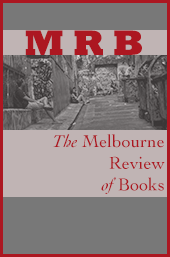 This is the final in my short series where I’ve attempted to root out the origin of some writing adages and put them in context. It seems more than likely that “murder your darlings” should be the easiest of these to hunt down. Arthur Quiller-Couch was a British writer who published under the pen name of Q around about the time of the first world war. He gave an inaugural lecture series in Cambridge, which was subsequently published as On the art of writing (lectures delivered 1913-1914, published 1916). This series contains the phrase “murder your darlings” in the following context…
This is the final in my short series where I’ve attempted to root out the origin of some writing adages and put them in context. It seems more than likely that “murder your darlings” should be the easiest of these to hunt down. Arthur Quiller-Couch was a British writer who published under the pen name of Q around about the time of the first world war. He gave an inaugural lecture series in Cambridge, which was subsequently published as On the art of writing (lectures delivered 1913-1914, published 1916). This series contains the phrase “murder your darlings” in the following context…
“Whenever you feel an impulse to perpetrate a piece of exceptionally fine writing, obey it–wholeheartedly–and delete it before sending your manuscript to press. Murder your darlings.”
Searching books from the 1800s turns up nothing of interest. The first appearance of the phrase is indeed from 1916 by Arthur Quiller-Couch. However, it’s interesting to note how the phrase moved and was re-quoted…
America (vol 15) 1916: We have what appears to be a book review that states…
The chapter “On Jargon” is full of sage counsel for those fond of “bromides”; “Murder your darlings” is the ruthless command “fine” writers receive, and the pages “On Style” are among the best in the book.
Interestingly, the phrase then seems to have caught on not with writers but in the business community, in particular in the context of writing advertising copy. It is mentioned or discussed in the following in order:
- 1918: Business Digest – Volume 5 – Page 18
- 1918: Business Digest and Investment Weekly – Volume 5 – Page 546
- 1920: Marketing Communications – Volume 112 – Page 36
- 1920: Making advertisements and making them pay
- 1921: Boot and shoe recorder – Volume 79, Issues 14-26 – Page 81 (in an article on writing advertising copy)
There are numerous other advertising books and magazines that quote it and then we have a mention in a Theosophical tract from 1935 and the phrase is mentioned in You and College by William Anderson McCall (1936), which appears to be the first instance of the phrase not being used as advice on how to write good advertising copy for your… shoe store… or whatever. The first instance of the phrase appearing in a place clearly intended for writers of books, whether fiction or non-fiction, and not advertisements is in 1940 (The Writer – Volume 53 – Page 345).
What a strange path this phrase has taken. It started out as advice to young writers submitting stories to newspapers, spent a good thirty-odd years echoing around marketing and advertising advice columns and then reappeared as advice for book writers only in 1940. The advice of course made a lot more sense back in 1916 when there was a tendency for people to be more elaborate and purple writers – and it certainly makes sense for advertising copy, which should not be wordy and long-winded. I’m unsure how relevant it is today, as most current would-be writers seem to be inclined to having an underdeveloped rather than overelaborate style. It remains, however, catchy and easy to remember as a ‘bromide’, so one supposes it will continue well into the future, one way or another.


I think in terms of actual structure and scenes, this advice can still be useful. At least in my own writing, I feel extraneous scenes need removed more than sentences and paragraphs reeled back. Though I have seen examples of actual prose needing cut back, it’s mostly been due to poor grammar or repetition that is generally easy to identify in a proof-read. Of course I’ve only done the two creative writing subjects while at uni, so I’m not really an expert on the sorts of things that must get inflicted on poor readers for agents and publishers.
Hm. That strikes me as very true and very sensible. Often writers do fall in love with scenes – or even with characters – that need to be removed from a book to tighten it up. It’s often one of the hardest things to identify when a book has moved entirely in the wrong direction and it isn’t just a matter of pacing or over-arching plot, but the scenes to be rethought or reworked from the ground up.
I should clarify that I have certainly seen a fair amount of over indulgent writing when reading slush for magazines, so it does certainly still exist out there – it’s just perhaps not quite the stylistic issue it once was when there was a more general, perhaps cultural, tendency to over-inflate writing with adverbs and adjectives galore.